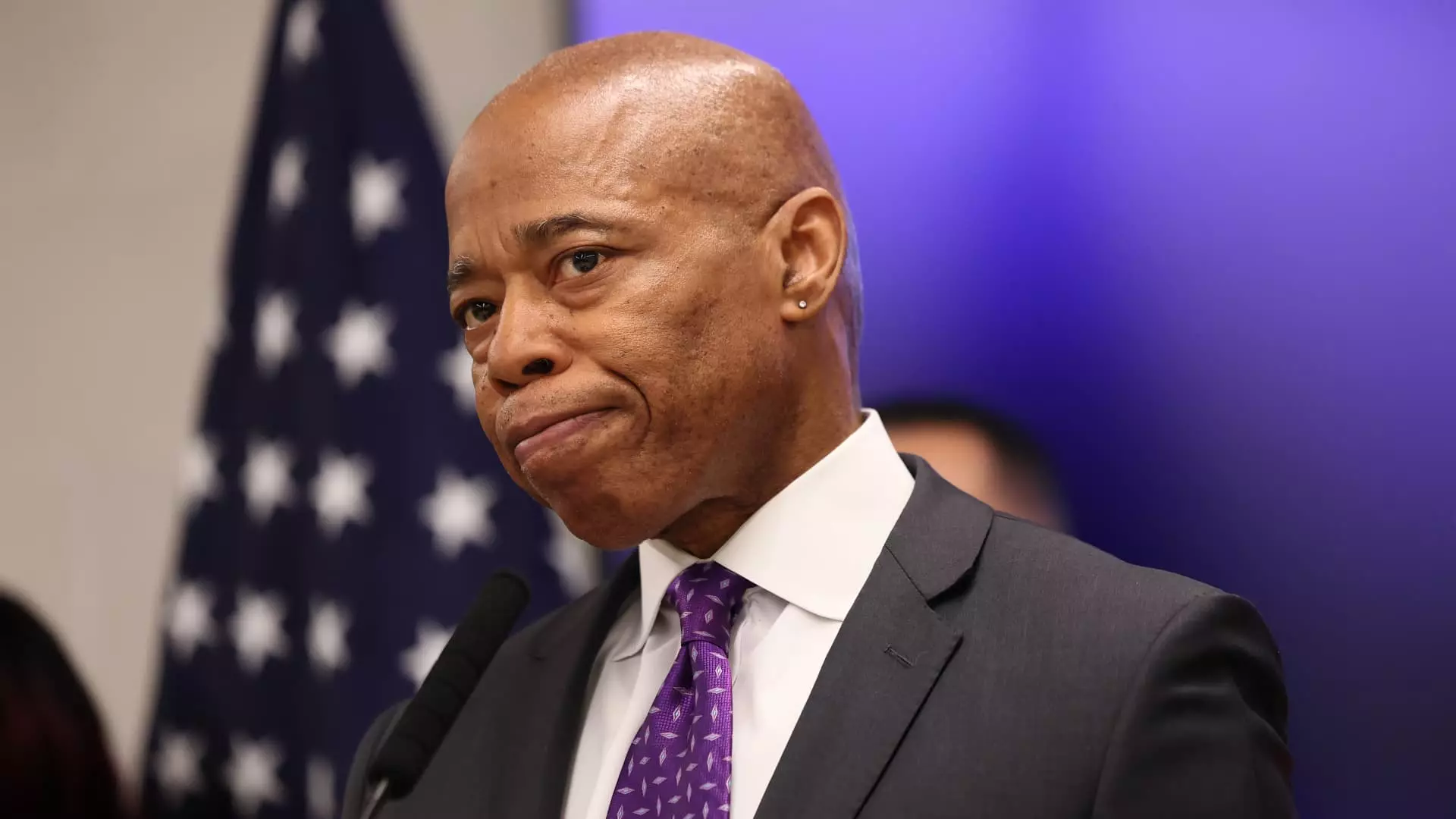In a significant legal battle, New York City Mayor Eric Adams finds himself embroiled in accusations of criminal corruption. The situation intensified when attorneys representing Adams formally petitioned a federal court for the dismissal of the case against him. This move sprang from claims of prosecutorial misconduct that allegedly undermined the integrity of the judicial process. Central to this defense strategy is a letter from Danielle Sassoon, the former acting U.S. Attorney for Manhattan, which Adams’ lawyers argue contains prejudicial statements about the mayor’s culpability.
This letter, which surfaced in mid-February, purportedly reveals that Sassoon expressed confidence in Adams’ guilt and intended to pursue further charges against him. It has since been labeled by Adams’ defense as a desperate, unwarranted act that could have far-reaching implications not only for Adams personally but also for the integrity of the legal process in which high-profile cases are adjudicated.
The fallout from Sassoon’s remarks culminated in a leak that propelled the case into the public spotlight. According to Adams’ defense attorneys, the disclosure of Sassoon’s letter shows systemic issues within the prosecutorial framework, including undue influence and a possible quid pro quo regarding immigration policies. The fact that Sassoon and multiple federal prosecutors resigned rather than comply with a directive from the Department of Justice to dismiss the case without prejudice raises eyebrows about the decision-making processes within the DOJ, suggesting internal conflicts that merit scrutiny.
The accusation of a quid pro quo—that Adams allegedly agreed to cooperate with prior administration immigration policies in exchange for a favorable resolution to his case—was also fervently denied by Adams and his legal counsel. Such serious allegations not only tarnish the mayor’s reputation but pose significant questions about accountability and ethics within the federal prosecutorial system.
Adams’ lawyers assert that the statements made in the leaked letter incorrectly portray the mayor’s actions and intentions, which they argue reflects a pattern of unwarranted scrutiny directed towards him since the investigation’s inception. They argue that if the integrity of potential evidence, like Sassoon’s assertions, is compromised, the case itself becomes fundamentally flawed.
As the legal proceedings progress, much hangs upon Judge Dale Ho’s decision regarding the federal case’s potential dismissal. If Ho rules in favor of Adams, dismissing the case with prejudice would effectively protect the mayor from any future charges concerning the same allegations. Conversely, a dismissal without prejudice could leave the door open for the DOJ to refile charges in the future, potentially prolonging the cloud of suspicion hanging over Adams’ administration.
The urgency expressed by Adams’ legal team is palpable; they contend that the allegations have already caused significant damage to the mayor’s reputation and functionality as a public servant. By seeking immediate relief through a with-prejudice dismissal, they aim to restore not only Adams’ personal standing but also to reaffirm the principle that unfounded allegations can have real-world repercussions.
The complexities surrounding this case extend beyond mere legal battles; they sit at the intersection of politics and law in a high-stakes environment. As observers await Judge Ho’s ruling, the potential outcomes carry considerable implications not just for Mayor Adams, but for the broader standards of justice and accountability seen in politically charged cases.
In light of this turmoil, it remains to be seen how the legal landscape will shift. What is clear, however, is that the integrity of both the prosecutorial process and the judicial system are under review as this case continues to unfold. The outcome may ultimately influence not just the fate of one mayor, but also the public’s trust in the mechanisms designed to uphold justice in politically volatile situations.


Leave a Reply